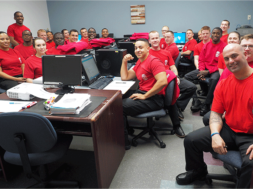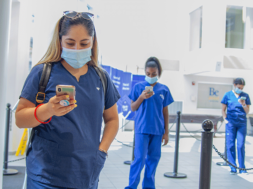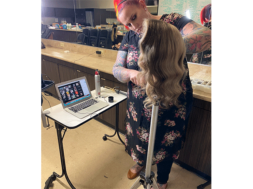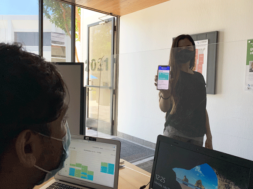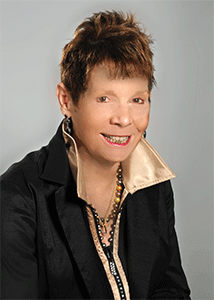
Community Outreach: How to Increase Quality Enrollment, Retention, Placement, and Brand Enhancement
By Dr. Susan F. Schulz, Ed.D., Founding Owner, Schulz School Advisors
Does your school have a Community Outreach department? Perhaps you call it Business Development, Program Advisory Board, University Outreach, or similar? Who does this person report to and where is their office located? A review of schools with successful Community Outreach programs indicates that the person who heads up the department should report to the president, school director, or other key decision-makers.
The Community Outreach person should not have an office in the school because they are supposed to be out in the community!
The goals of the Community Outreach department are to increase the enrollment of qualified students, impact curriculum, program planning, retention, graduation, and placement, and enhance institution brand. The following are “how-to’s” to set up a new department or enhance an existing department at your institution. Smaller schools may want to add these tasks to the Admissions or Career Services departments.
Start with success
A success-focused Community Outreach department typically needs an advisory board, director, support people, budget, and goals. Choosing people for your advisory board is important. Think of people who can give the best advice and represent the community and the best interests of your school. Goals can include measurable results that increase quality enrollment and should involve as many aspects of your community as possible. Your regulatory agencies might have additional requirements. The goal is a solid productive accountable foundation.
Build a list of community contacts
Your community includes more than 18-year-olds! Your students can come from local business, organizations, graduate referrals, change-of-career people, retirees, and more. Start with employers that do or could hire your students. Then include community groups like Chambers of Commerce, Economic Development Boards, and professional organizations related to your training. These are all organizations that can benefit from awareness of your school and programs.
Resources to build your list include websites, social media, print publications, and more. Ideally, you will locate the CEOs, Presidents, HR Directors, Development Directors, and other decision-makers. Remember that employers are your customers just like your students.
Understand your community
Clearly define and understand your community in terms of key industries and companies that may be moving into your area or are being courted by area Chambers and Economic Development Boards. What training will they need now and next year? What training is already offered by other schools? What continuing education might be required? Of these training needs what is your school prepared to offer now and in the near future?
What are your community demographics? It’s not just about high school students. What is the education level of your community? What is the dominant and developing culture, language and ethnicity and what are the population trends? Look at your community in different ways. Are there doctors and nurses from other countries who can’t get a license to practice? They could be trained to be great massage therapists in the meantime.
Reach out to your community
It’s all about networking. Connect with the one person in each organization that can connect you to 100 people! This one person could again be the company decision-makers or perhaps the Public Relations and Marketing directors. Reach out company by company and organization by organization. Do you make presentations at their offices or at your school? What does an ideal agreement look like? What companies can you partner with?
Make alliances happen
When you connect with companies and organizations it is important to formalize a relationship. It can happen in many ways. Someone needs to be in charge and accountable. This could be the Community Outreach Director at the school. It could be the decision-maker or marketing person at the company. There needs to be a budget, plans, target dates, and ways to market and assess results.
Examples of alliances
A DEAC approved college formally partners with companies and government agencies. Their goal is to provide training to employees. An allied health school participates in health fairs so that students learn about job openings in their area. Local medical centers at the health fair learn about the school and how its training meets their staffing needs. Students and grads can have no-pressure practice interviews with employers.
A Florida HVAC school sends resumes of all graduates to all area air conditioning companies and proudly boasts 100 percent placement.
A southern aviation school organizes field trips for high school students. They provide a bus, snacks, and take a teacher chaperone along. The teachers select the students based on the student’s interest in aviation, their GPA, and other criteria. This can be applied to other careers. A dental hygiene school offers free clinics for children.
Walmart offers education to its employees for $1 a day. They are committed to investing in their employees’ personal and professional success.
Employees can choose degrees, the particular school, and more. https://walmart.guildeducation.com/partner.
Starbucks offers full tuition for bachelor’s degrees, UPS covers $25,000 of tuition, Procter & Gamble pays up to $40,000 – all examples of community partnerships with colleges. This website can give you many ideas on how to partner with companies in your community. https://thekrazycouponlady.com/tips/money/11-companies-that-will-pay-for-your-college-degree
Some schools offer other services to bring people onto their campus. Examples are high school tutoring, ESL conversation classes, writing workshops for Veterans and more. These are examples of how institutions can offer complimentary help to the community and visitors can enjoy a free tour of the school. These visitors can tell their friends, family, and employers, which is a powerful marketing strategy.
Make your regulatory agencies happy
As you know, regulatory agencies may have guidelines. Therefore, it is important to refer to whatever rules could impact your Community Outreach initiatives. Many accreditors are specific about the qualifications of the Advisory Board members and their affiliations with local companies. Some regulations dictate the number of meetings to be held each year.
Benefits of community outreach
Alliances provide a meaningful way to show off your school – who you are and what you offer. Referral enrollments increase, students have expanded tuition assistance options and there is less dependency on Title IV. Happy students mean increased retention. Employer relationships mean more job openings and always knowing what type of training is needed next. Your community, and especially prospective students, can learn the value and benefits of your school.
Many colleges reviewed in various career school-related publications and websites believe that no institution can function effectively without the support and input of its community. Employer and community input helps to keep the curriculum up-to-date. Schools should become current about the latest trends and technology so graduates have the skills employers really want. Graduates have increased assurance that they will have the skills employers require. Schools that have great industry relationships often enjoy a competitive edge.
DR. SUSAN F. SCHULZ has been working in the for-profit school and college sector for over 25 years. Susan F. Schulz & Associates, Inc. and Schulz School Advisors provide services to owners of career schools and colleges. This includes starting up and developing postsecondary schools, locating acquisitions for qualified buyers, and the sale of schools and colleges. Their market is throughout the U.S. plus growing international locations.
Contact Information: Dr. Susan F. Schulz, Ed.D. // Founding Owner // Schulz School Advisors // 561-289-8786 // susan@schulzschooladvisors.com // schulzschooladvisors.com // Social Media: LinkedIn




